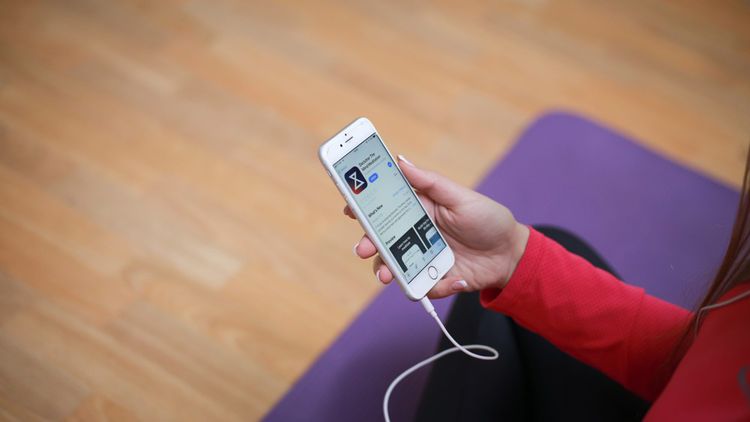Youth is a period during which the desire for freedom and risk-taking take precedence. Health is not a priori a priority for young French people, if we are to believe the results of the polls. However, the severe disruptions caused by the Covid-19 crisis in their studies, their career choices and their work have resulted in a deterioration of their mental well-being.
The level of psychological stress is felt more strongly in young adults, aged 18 to 25. An Ipsos study reveals that three quarters of them felt sadness or anxiety and half a feeling of isolation in the context of the pandemic.
Gender plays an important role in the manifestation of psychological disorders in young adults, since women suffer more than men from social isolation, which is the cause of a drop in their school results.
New practices
With the Covid-19 health crisis, young people have been confronted with a virus which, at first, did not seem to reach them, but which today affects them directly, through the social and economic disorganization caused by the measures sanitary. Now, for 92% of young people, it is important to talk about mental health and 80% of them say that it will even be the most decisive element in 2030.
The question that arises today, and which constitutes the challenge of tomorrow’s research, is how to deal with the psychological disorders generated by the health crisis, and their long-term impact. So what about meditation, a tool for personal development and anxiety management that is highly publicized today through online applications?
Young people who in the past were embarrassed to reveal that they were meditating now say so without fear. 47% of 18-34 year olds have already practiced meditation to escape the anxiety-provoking climate caused by the health crisis, compared to 32% of those over 55.
Research launched in 2020 with Carole Daniel, professor at Skema Business School, on a sample of young professionals (average age 35), reveals the benefits of the practice of mindfulness meditation, more particularly the program created by John Zabat Zinn Mindfulness-Based Stress Reduction or MBSR.
This program includes 8 weekly sessions of two and a half hours, to which is added a day in silence. In addition, participants are invited to practice daily at home (6 days a week, between 20 and 45 minutes, with the help of audio files).
The current study reveals interesting differences between the two groups of practitioners (306 people who have followed an MBSR program) and that of non-practitioners (196 people who have not followed the MBSR program).
Like Petit Bambou or Headspace Mini, many meditation apps are full of users.Pxfuel
The results show the interest of following an MBSR program to fight against addictions, since young practitioners obtain addiction scores lower than those of non-practitioners (average score of 2.51 out of 5 for practitioners against 3.50 for 5 for non-practitioners on the smartphone addiction scale; and mean score of 2.68 out of 5 versus 3.12 out of 5 on the work addiction scale).
Digital tools
Gone are the days of looking for a meditation center to follow a long-term meditation program. Meditating via your smartphone has become part of the practices of the new generation, a sign of a need to refocus without disconnecting.
The number of new subscribers to the daily sessions followed on the star meditation application, Petit Bambou, has tripled, from 5,000 to 15,000 new users per day. Other meditation practices, integrated into the Headspace Mini app, Snapchat’s safe space, have been designed to support the mental health and well-being of young Snapchatters.
For example, “Choose Kindness” is a mini-meditation focused on practicing kindness that can change how we show ourselves in the world and how we treat others. Or, “Take on the School Year” is a mini-meditation focused on the feelings of worry, anxiety, isolation that young people may have experienced at school. Of note, in the first month of operation, more than 5 million Snapchat participants used Headspace Mini, indicating that mental health tools and resources are well received by this young audience.
In search of meaning, in their daily lives as well as in their way of working, young people favor personal development and the search for a better balance between professional and private life. Their interest in meditation shows that it is not an epiphenomenon in response to the health crisis, but above all a way of daily living and the art of cultivating mind-body unity.
Meditation marks a fundamental trend that is bringing about a revolution within society itself. This recentering on oneself is an effect of secularization which corresponds to a new age and to an esoteric vision of the world, as specified by the professor of history of philosophy Wouter Hanegraaf.
This article was published on The Conversation, find it in full here .
We would like to give thanks to the author of this write-up for this remarkable web content
Why meditation is gaining ground among young people
We have our social media profiles here and other pages on related topics here.https://nimblespirit.com/related-pages/

